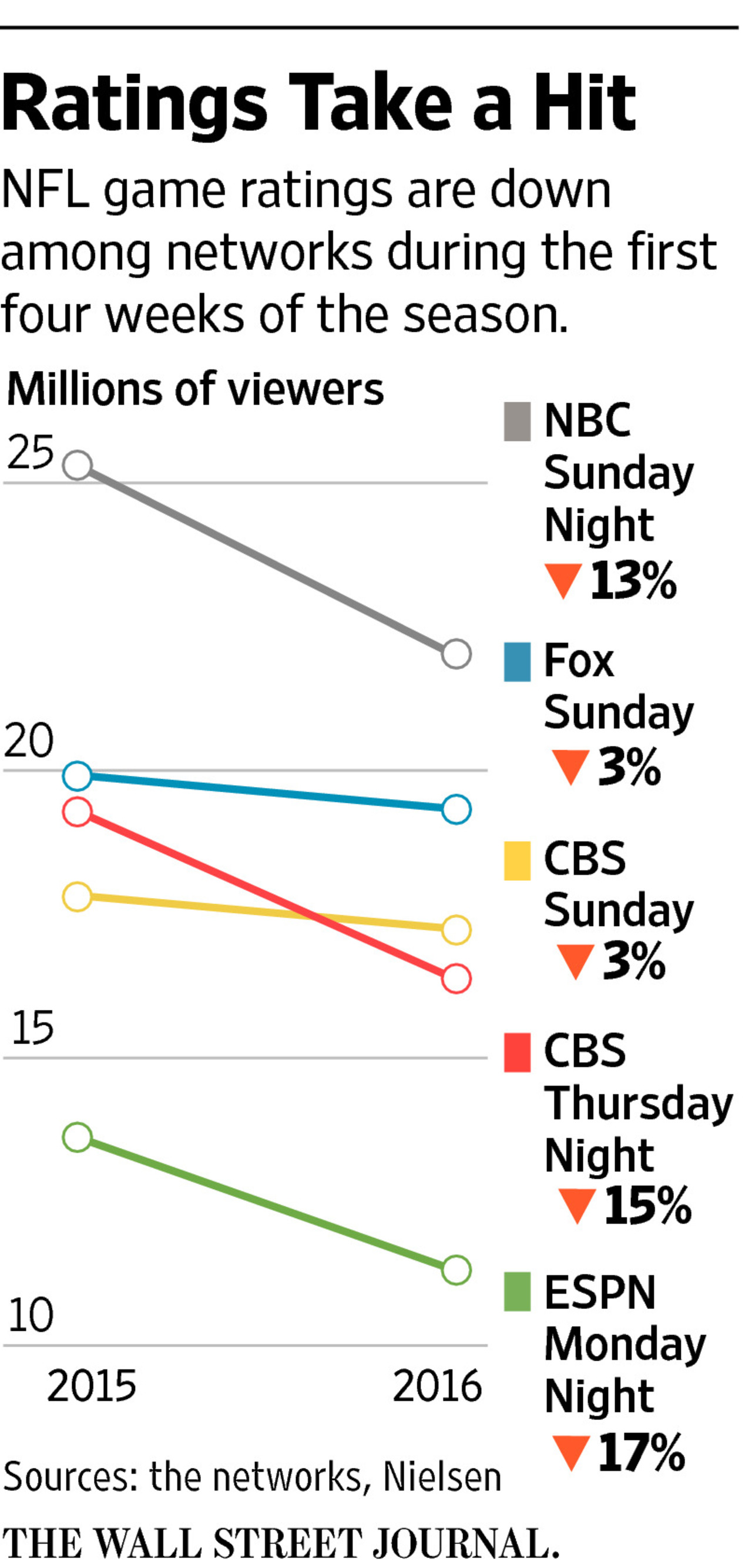A take on the NFL’s declining viewership
Rory McCreight – SPORTS EDITOR
It’s been a rough year for the NFL. From its unwillingness to punish domestic abuse (and the negative PR brought by this) to the reality that former players are passing away young due to CTE brain disease directly tied to their playing days.
On top of all that, viewership is down. What’s gone wrong with the entertainment juggernaut?
The ethical problem for the NFL is its inability to acknowledge wrongdoing. In both the case of domestic abuse and the CTE (short for chronic traumatic encephalopathy) epidemic, the NFL either takes an ambivalent stance or outright denies accusations. For domestic abuse, the NFL gives a one-game suspension for first time offenders: a mere slap on the wrist in hopes that it won’t leak to the public. When the details of these cases eventually do just that (such as in the case of Ray Rice, where video surfaced of him punching his wife in an elevator) the NFL steps in and doles out bigger punishments and an ad campaign to right their earlier wrongs.
Dr. Bennet Omalu’s 2005 CTE findings were even denied outright by the NFL, who called them “completely false.” In response, Omalu published a second paper in 2006 that purported the brain of former NFL player Terry Long (who died of suicide brought on by depression at 45) contained tau protein consistent with the kind found in the brain of “a 90-year-old [with] advanced Alzheimer’s.”
The recurring pattern here is the NFL’s attempt to maintain a squeaky clean corporate image. It seems the NFL thinks that if they continue to deny CTE’s connection to football and deal with domestic abuse cases quietly and in-house, the sponsors will stay. This clean corporate image —and remember, the NFL took in 12 billion dollars last season (a 14.5% increase from 2014) — seems more important to the NFL than its public image.
By either turning a blind eye to ugly realities, or outright denying them, the NFL has been able to maintain their brand and see ad revenue continue to skyrocket.
To the average NFL fan, perhaps none of this matters. They could argue that the league shouldn’t have to police the private lives of grown men and that those same men chose to engage in a gladiatorial blood sport willingly, knowing the consequences. All fair points, but even they wouldn’t be pressed to admit that the league has become a bit boring.
Football began as a Sunday tradition. You would flip between regional games during post-church family brunch and then watch the one big prime-time match up that ended after your parents sent you to bed. In recent years, the NFL has branched out its programming, moving its smaller market match-ups to other nights of the week — or to London — in order to generate more hours of profit. Sure, this boosts ad revenue, but most fans outside of Jacksonville and Tennessee don’t care enough about the Jaguars and the Titans to even think about football on a Thursday.
Even the players agree: Cam Newton, reigning MVP and dabbing superstar, challenged the refs and commissioner Roger Goodell after a game where he felt the refs weren’t calling dangerous hits against him. “It takes the fun out of the game. At times, I don’t even feel safe,” said Newton.
On top of enabling injuries, the league penalizes players for celebrating — as though passionate athletes don’t make for exciting television.
Ultimately, money talks. Until the NFL stops making money, it has no reason to change. Perhaps this recent ratings drop (displayed above) will be the impetus it needs to fix itself.




